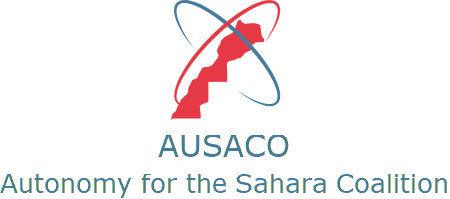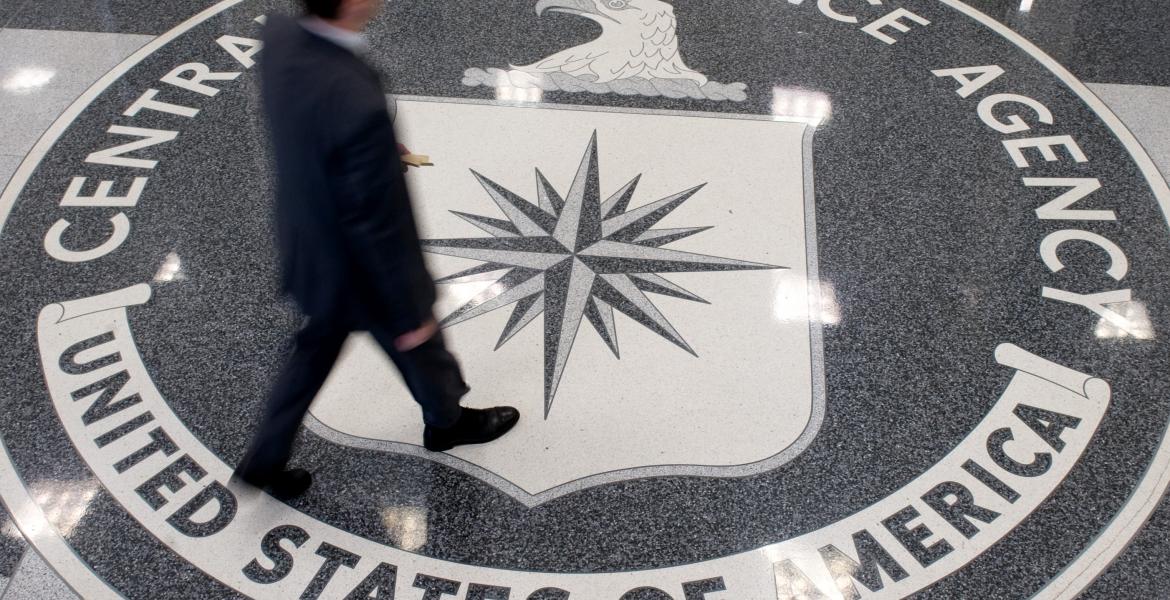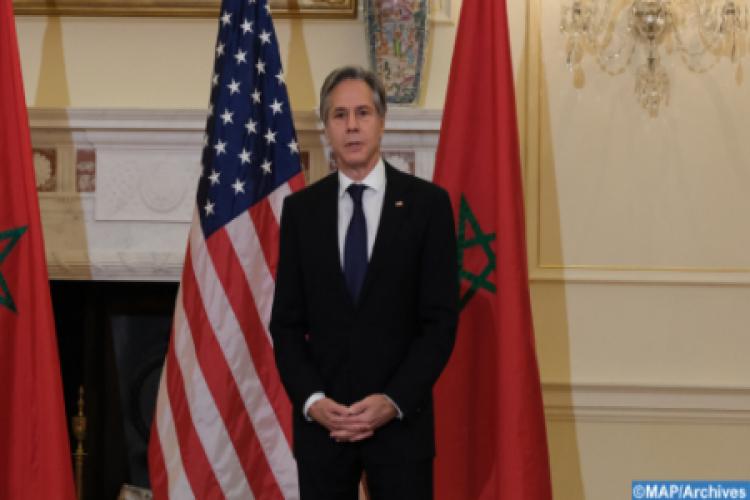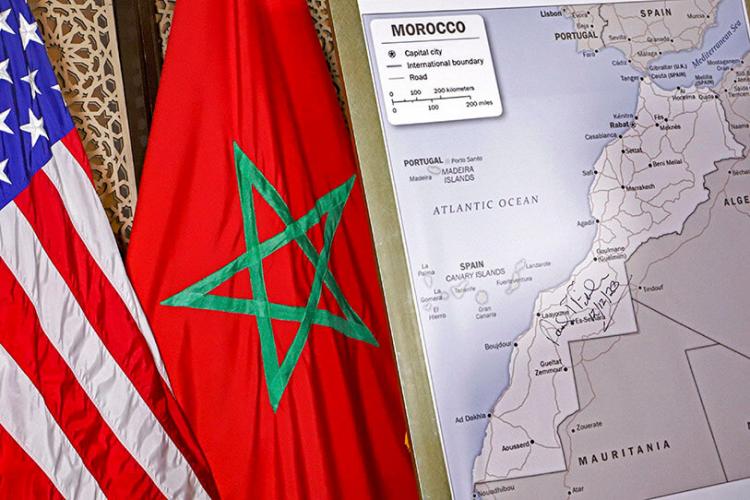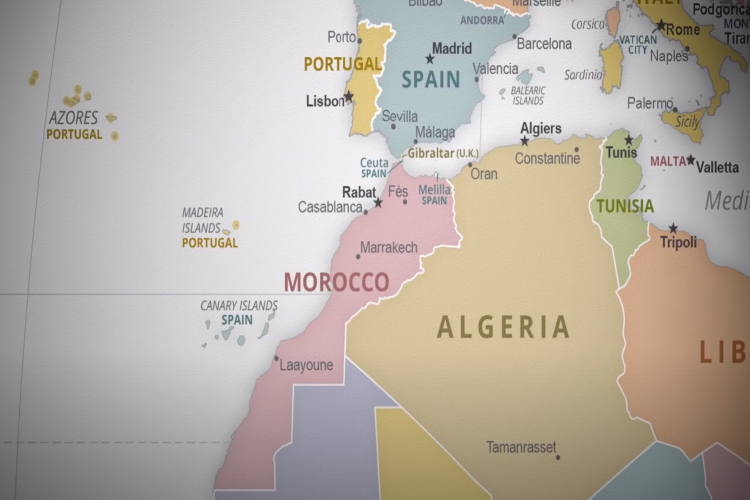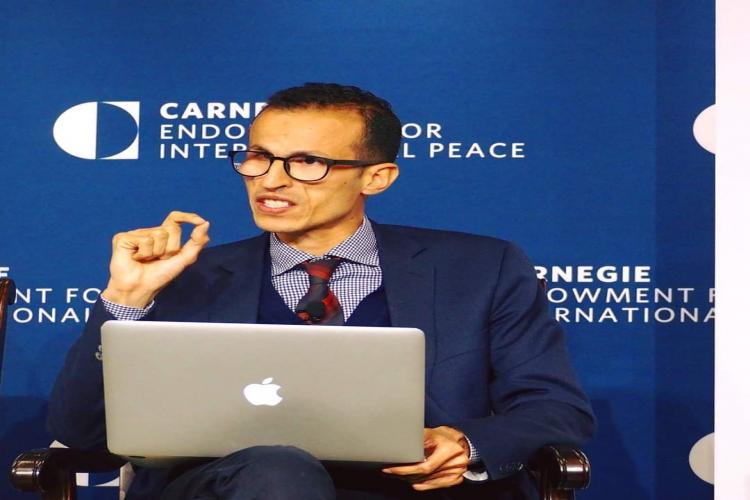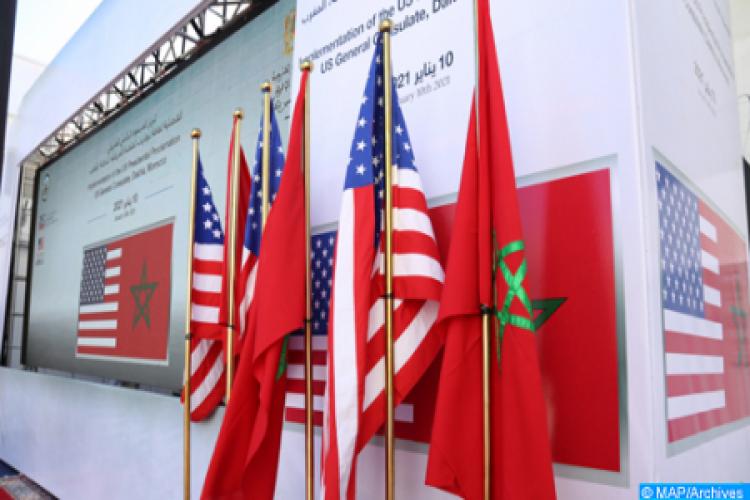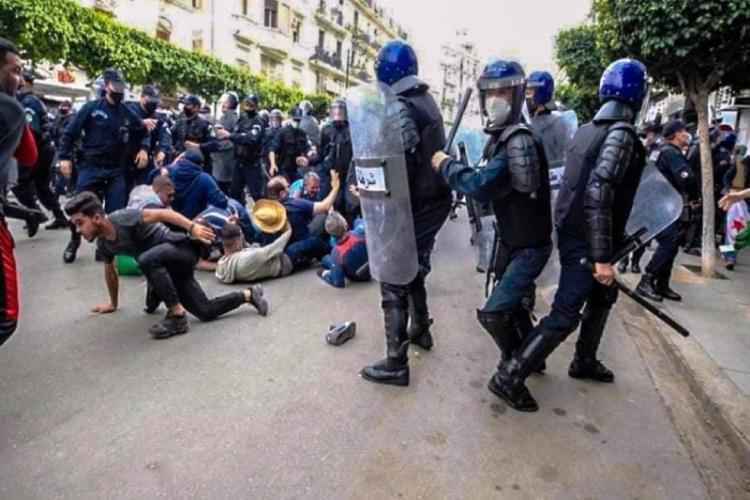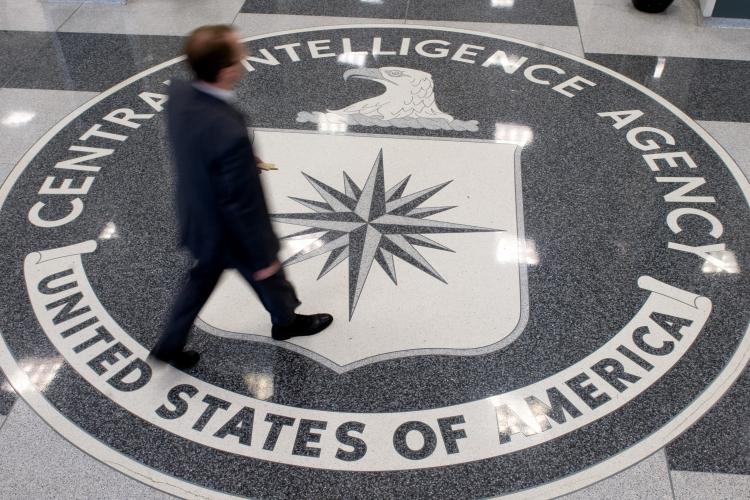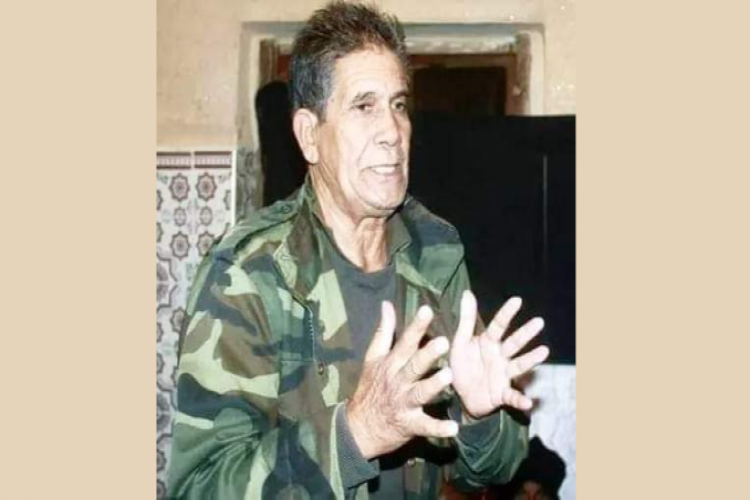CIA Document: Algeria wanted a micro-state in Western Sahara to reach the Atlantic
Algeria argues that its position of "support for the self-determination of the Sahrawi people" is the inalienable principle of a country that considers itself an observer in the regional dispute over Western Sahara. However, declassified CIA documents clearly show that this support is not expressed for the interests of the Polisario. Algiers is mainly interested in a corridor to the Atlantic through the creation of a puppet state.
Algeria instrumentalizes the pretext of "support for the self-determination of the Sahrawi people" to try to legitimize its alignment with the separatist thesis of the Polisario Front, which it supports financially and militarily. Beyond weakening Morocco and being at the forefront of the political scene in the Maghreb, the main objective of this diversion is primarily to pave the way towards the Atlantic coast, according to a CIA document dated December 1977 and declassified in November 2012.
US intelligence indicates that the "annexation of Spanish Sahara" by Morocco represents a "vital national interest" supported by all layers of society in the kingdom. The document notes that this annexation "has a deep historical and religious basis, with fundamental repercussions on the political life and stability of the regime, while being closely linked to Morocco's ability to deal with its main geopolitical rival, Algeria."
At the same time, the CIA questioned the validity of the hypothesis justifying Morocco's annexation of the Sahara by the desire to "dominate the international phosphate market." It states that Morocco's claims over the Sahara "are deeply rooted in elements of national history." Before colonization, "Moroccan rulers politically controlled, to varying degrees, a large part of western North Africa." "From the 10th to the 17th century, Moroccan influence took root in the political life of Western Sahara, present-day Mauritania, southwestern Algeria, and even Mali," adds the same source.
Thus, while most components of the Moroccan population have accepted, in the past, "the loss of a large part of precolonial Moroccan territory as a fait accompli" referring to the Eastern Sahara, "Western Sahara, on the other hand, is the notable exception: since the early 1970s, the strong irredentist trend has focused on the recovery of the former Spanish Sahara, which Morocco has considered as a last chance to reclaim some of its stolen lands," analyzes the document.
"The claim of the Sahara by Morocco is not based on a Western definition of the principle of sovereignty. (The decision of the International Court of Justice in October 1975 noted that the links between the different tribes in the region with Morocco and Mauritania, at the time of Spanish colonization in 1885, were insufficient to establish territorial sovereignty). It is rather deeply rooted in the religious notions of allegiance of a people to their king. It is also linked to the precolonial hegemony of Morocco in the region... As a result, almost all components of the Moroccan population, both modern and traditional, have strongly supported the righteousness of Morocco's policy in the Sahara issue."
CIA Document
The document indicates that all opposition party trends have also used all means to defend Morocco's right to sovereignty over the Sahara, "as evidenced by the mobilization during the Green March in November 1975." "Remarkably, national support for the royal policy in the Sahara has not wavered, despite the growing military budget it has involved. Furthermore, the issue of the Sahara is considered decisive from the perspective of domestic politics by Moroccan leaders. If Hassan II retreats on Morocco's demands in the Sahara, he will face a loss of legitimacy," further analyzes the CIA.
Algeria, a major stakeholder
Furthermore, the document indicates that Algerian President Houari Boumédiène revised Algeria's position after the Moroccan-Mauritanian agreement on Western Sahara during the Arab Summit held in Rabat in 1974. According to the document, Algeria would have conducted a "proxy war" against Mauritania and Morocco using the Polisario.
«Bien que la raison apparente de l’Algérie pour soutenir le Polisario soit le principe d’autodétermination, sa rivalité historique avec le Maroc pour l’hégémonie en Afrique du Nord-Ouest en est le principal moteur. L’objectif de l’Algérie est d’établir une ‘République sahraouie indépendante’, sur laquelle elle aura une influence totale, ce qui priverait le Maroc des ressources économiques de la région et entraverait les efforts de Rabat pour restreindre l’accès futur de l’Algérie à l’océan Atlantique.»
Document de la CIA
The agency's report highlighted that Boumédiène opposed "the inclusion of Western Sahara in Morocco as it would challenge Algeria's aspirations to dominate North Africa." It further added, "Moroccans feel that they cannot abandon their claims on the Sahara for the following reasons: the creation of a small state dominated by Algiers would be like a knot around Morocco, separating it from its Mauritanian ally and the rest; an extremist Sahrawi republic would serve as a rear base for Moroccan revolutionary groups linked to the Polisario Front; the significant wealth represented by phosphate."
The document concludes that "Morocco is unlikely to accept a settlement formula that threatens its claim of sovereignty over the Sahara, although it may be flexible on other aspects of a potential settlement (joint exploitation of resources, guaranteed access to the Atlantic, amnesty for Polisario fighters, etc.). In any case, the kingdom relies on the continuation of French cooperation and guaranteed financial support from Saudi Arabia."
Another document dating back to April 1987, declassified in July 2012, emphasized that Rabat and Algiers realized that the military option would not resolve the dispute. "Their views on a negotiated settlement are slowly converging," the same source adds. Furthermore, the document described Algerian President Chadli Bendjedid (1979-1992) as the "key to progress" because he "will eventually be forced to make diplomatic concessions, as his government would not want to risk engaging in an open war in the hopes of pushing back King Hassan II's successful efforts to consolidate his sovereignty over Western Sahara."
In this case, Algeria would be seeking "an option to save face," possibly by advocating for "a form of governance through federalism, allowing effective sovereignty of Hassan II over these territories, in exchange for some form of autonomy for the Polisario Front," so that Algeria does not find itself completely defeated. Furthermore, the resolution of the dispute would not affect Moscow's relations with both Morocco and Algeria.
"A settlement could strengthen the position of the United States in the Maghreb, primarily because it would bolster Morocco, the closest friend of Washington in the region. It could also encourage King Hassan II to take actions, such as unilateral initiatives within the framework of the Arab-Israeli peace process, which would complicate other U.S. interests in the region. The king could exert pressure on the United States for increased financial and military aid in exchange for his willingness to support American strategic interests, but this is unlikely to weaken his relations with the United States. Algeria is likely to consider Washington partly responsible for the success of Morocco in Western Sahara."
CIA Document
Algeria would support 'terrorist acts' by the Polisario
As for military clashes, the document states that the Polisario Front and its Algerian backers 'maintained control until 1981 when Morocco constructed its first wall.' Since then, the kingdom has gained the upper hand, controlling over two-thirds of Western Sahara, achieving more significant success on the ground than what Rabat has achieved diplomatically. 'Rabat is prepared to continue the war indefinitely. The government is constructing a new berm that will enable it to control approximately 90% of the territory. We believe this step reflects Rabat's pessimism about the chances of reaching a favorable political settlement in the near future,' added the CIA.
In this context, U.S. intelligence tended to believe that 'King Hassan II's diplomatic strategy consisted of temporary procrastination while holding onto his positions.' 'Despite his refusal to compromise and firm military commitment, we believe he understands that a military victory cannot be achieved or resolve the dispute, and that only a political solution can end the conflict,' they added. In this regard, the document notes that 'the economic and military dependence of the Polisario Front on Algeria leaves it little room to challenge Algeria's will.'
Thus, the CIA estimates that Bendjedid's frustration with this impasse and the near-total isolation of the zone facing Algeria could potentially prompt the latter to engage in military escalation. It could allow Polisario mercenaries to carry out terrorist actions within Morocco, according to CIA information. Algeria could also decide to participate more formally in a direct confrontation.
In both cases, the neighboring Eastern country would seek to force King Hassan II's hand at the negotiation table without provoking an unwanted war between the two countries, the document adds. In this sense, a micro-state in the region 'will not be economically viable, considering its small population and lack of resources.' 'It will heavily depend on foreign support and be vulnerable to sabotage. In our opinion, Morocco and Algeria will eventually compete for control of the territory, bringing the situation back to square one,' highlights the CIA."
